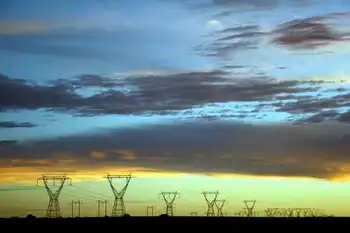Jordanian Government backs down from electricity price hike
By Ammon News
Electrical Testing & Commissioning of Power Systems
Our customized live online or in‑person group training can be delivered to your staff at your location.

- Live Online
- 12 hours Instructor-led
- Group Training Available
The government announced yesterday a Cabinet decision taken late Sunday to annul electricity tariffs that carried a 9 per cent average increase across the commercial, industrial and residential sectors and prompted a popular backlash from activists and traders alike.
National Electric Power Company NEPCO Director Ghaleb Maabreh confirmed that the Cabinet cancelled the electricity price hikes, which were to go into effect this month as a bid to alleviate the company’s projected JD1.7 billion budget deficit for 2012, expecting officials to issue new, revised tariffs “soon”.
According to an official source, the new rates will be close to the previous tariffs, which introduced for the first time pricing brackets based on consumption levels, including a “sizeable” increase for the largest consumers.
Sunday’s decision poses an additional challenge to energy officials who claim they carefully crafted the previous electricity rates to minimise the negative impact of the raise while alleviating a growing burden on a near-record JD1.02 billion budget deficit some economists warn may tip the Kingdom into a “financial crisis”.
“The question before us now is what is the alternative to raising electricity rates, and we have yet to come up with an answer,” Ahmed Hiyasat, Electricity Regulatory Commission director, told The Jordan Times.
Meanwhile, the government’s announcement failed to stem the ongoing controversy over electricity rates, with parliamentarians pledging to go ahead with a vote to withdraw confidence from Awn Khasawneh’s government if authorities fail to “completely reverse” its decision to raise electricity prices.
Lower House Energy Committee Chairman Jamal Gammo expressed doubt that the revised rates will soften the economic impact of the electricity price hikes, denouncing the government for taking a “unilateral” decision to adjust rates without the input of the private sector and lawmakers.
“We have yet to finish our discussions and the government took a backdoor decision in the middle of the night,” Gammo said.
“This is a decision that affects all citizens and all sectors and should be debated openly if the government wants any support for this new tariff.”
According to Gammo, the committee will continue its deliberations over the economic impact of the proposed raise in electricity rates with private sector representatives and energy experts.
The deputy added that MPs will suggest a series of alternatives, including withdrawing confidence from the energy minister, should the new tariffs fail to meet their expectations.
Lawmakers vowed to proceed with a campaign to withdraw confidence from the government, which deputies claim that as of yesterday they secured the support of 44 of the 90 lawmakers required to proceed with the motion.
SundayÂ’s decision also did little to alleviate the concerns of traders, who claimed that the previously announced tariffs would impact 80 per cent of commercial outlets, passing on a 15 per cent price rise in basic goods to consumers.
“Unless the government completely exempts the commercial sector from any rise in electricity rates, citizens are going to pay the price,” Jordan Chamber of Commerce President Nael Kabariti told The Jordan Times.
Kabariti criticised officials for failing to include the private sector in its decision, adding that shopkeepers across the country are set to shutter their storefronts next week in a general strike should officials fail to exempt commercial outlets in the price change.
The government revised electricity tariffs in late January as a response to a series of disruptions in Egyptian gas supplies, the KingdomÂ’s main energy source, which cost the Kingdom an additional JD1 billion last year, a number that is forecast to rise to JD1.7 billion should pumping fail to resume in 2012.
According to NEPCO, Egyptian gas supplies have yet to resume since an explosion on the Arab Gas Pipeline in the Sinai Peninsula earlier this month that marked the 13th act of sabotage on the line this year and forced the KingdomÂ’s power plants onto their heavy oil reserves at a cost of $5 million per day.











